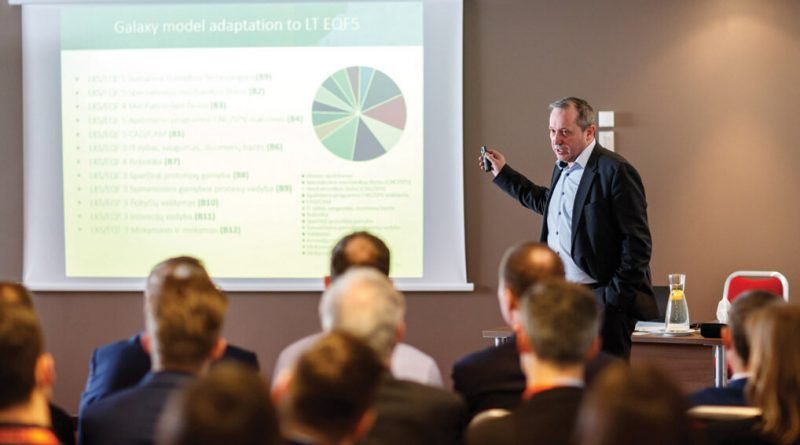Short and long-term challenges of social security and labor
On Friday, the leadership of the Lithuanian Confederation of Industrialists (LPK) discussed how to improve labor relations and strengthen social dialogue. Demography, birth rate promotion, employment of foreigners and other important issues were discussed in a remote meeting with the new Minister of Social Security and Labor Monika Navickiene and her team.
Demography and adaptation
According to LPK President Vidmantas Janulevičius, LPK, being a member of the Tripartite Council of the Republic of Lithuania, has been cooperating closely with the Ministry of Social Security and Labor for many years. LPK provides issues and suggestions.
“The situation caused by the pandemic presents many new challenges when fighting fires here and now. When it comes to disturbing demographic trends, society’s adaptation to rapidly changing technologies or similar issues, the determination of all social partners to address strategic issues together is also important. As social partners, we are glad to hear from the Minister and her team the determination to initiate discussions and seek balanced solutions”, said V. Janulevičius.
Responsibilities to the Employment Servise
At the meeting, the Minister was presented with the LPK’s proposals for the plan of measures for the implementation of the Government’s 2020-2024 program in the areas of demography, migration and other areas supervised by the Ministry.
Proposals include a call to delegate the formulation of migration and demographic policy and the implementation of related programs to one specific institution. Job retention, retraining and further training were proposed to be a priority of the Employment Service. Also, public employment and retraining systems are expected to be optimized by delegating resources and responsibilities to this service.
Adult education
The LPK drew attention to the request to increase overall immigration flows. That would compensate the constant decline in the population and working age population. Moreover, it would ensure a positive migration balance. Also simplified conditions should be created for qualified specialists to come to Lithuania and get a job in those areas where there is a shortage of employees in Lithuania.
The proposals emphasize adult education, which, as the LPK notes, must help a person to maintain and develop professional and general competencies and values, learn to function and live in a rapidly changing technological environment.
To this end, it is proposed to create a lifelong learning system that integrates the Employment Service, vocational training institutions and higher education institutions. It is noted that there is a need to promote the involvement of adults in lifelong learning and to create a flexible service for the recognition of self-acquired competencies and the demonstration of skills in sectoral practical training centers.
The impact of quotas
The need for long-term support measures for the businesses most affected by COVID-19 (hotels and restaurants, passenger transport, etc.) was also noted. Representatives of LPK requested to provide subsidies for employees after downtime, after the end of the quarantine. Subsidy for each maintained job – 100 percent estimated funds, but not more than 1.5 MMA.
LPK noted the need to hold a separate discussion on quotas applied to foreigners coming to Lithuania to work in a specific shere, which is included in the list of professions for which there is a shortage of employees in Lithuania. Representatives of the LPK noted that the quotas set for some sectors do not correspond to the real need at all. The introduction of quotas will have a particularly severe impact on road transport activities.




